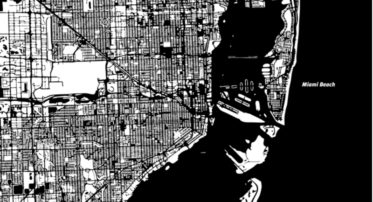Want to Learn More?
Drop us a line. We'd love to hear from you!
How Asset-Based Lenders are Responding to Tariff Uncertainty

Recent tariffs levied on imports from China, Mexico, Canada, Turkey, and the European Union have resulted in countermeasures, threatening an all-out trade war.
That’s what’s in the headlines, at least.
But it’s important to remember that, historically speaking, tariffs are still quite low. At their peak in 1932, the average U.S. import tariff rate was just below 20 percent. Current rates are around 1.5 percent.
Still, the number of goods affected is quite large, ranging from imported aluminum and steel to exported grain, automobiles, and technology components. Tariffs may increase or decrease, and asset-based lenders are adapting to the increased uncertainty and risk in a number of ways.
Increased Portfolio Monitoring
According to a joint TSL and Gordon Brothers survey, the majority of asset-based lenders are adjusting their portfolio monitoring. The specific sectors where lenders have altered portfolio monitoring include:
- 55 percent in metals
- 41 percent in automotive
- 35 percent in retail
- 31 percent in agricultural commodities
Limiting Exposure
Asset-based lenders are also:
- Increasing their diligence regarding potential direct and indirect impacts on borrowers;
- Relying on third-party appraisal firms to assist in monitoring go-forward changes;
- Limiting certain sectors and asset categories from their portfolios; and
- Avoiding cross-border activities with Chinese companies.
Forecasting Asset Values Difficult
In the short term, input cost increases will boost some inventory values. But once that product is sold and removed from inventory the one-off gain will disappear.
Machinery and equipment values may increase as new investment flows in to domestic industries to make up for decreased imports. This has already occurred in numerous sectors, most dramatically in solar.
The impact on retail and consumer finished goods inventory will depend largely on consumers’ willingness to withstand price increases, which means the question goes back to the economy writ large. If increased costs cannot be passed onto consumers, asset values will flag.
Retail and wholesale borrowers most affected by tariffs will have to push cost increases through the supply chain or shift purchasing away from affected countries.
The Big Picture
For asset-based lenders, knowledge is power. A ratcheting up of trade tensions could lead some manufacturers to switch suppliers or shift production overseas. Decreased margins and slackening sales due to increased prices could lead some borrowers into distress. On the other hand, some companies will thrive if a new trade paradigm takes hold. It depends on the company, industry, and sector in question.
As we noted, asset-based lenders are already shifting portfolio monitoring and increasing appraisal discipline to mitigate downside risk.
Uncover Relevant Risk Information with AADS
Knowledge is power and All American Document Services is your extra set of eyes. We make it easy to get an accurate picture of borrowers, identify any liens encumbering their assets, validate key data against public record databases, and achieve peace of mind!
Our turnaround time is 48-72 hours, but most searches are completed within 24 hours. We also fulfill priority and rush requests, and same-day document retrieval, filing and recording in some counties.
Check out our UCC Corporate Services or learn more about our AADS Advantage. If you’re ready to get started, Place Your Order today!
Leave a Reply
Recent Blogs
-

Why Choose AADS for Miami-Dade County Municipal Lien Searches?
Jan 08, 2020All American Document Services has become a leading provider of Miami-Dade County Municipal Lien Searches because we understand the unique laws and customs of the ...
READ MORE -

Why Switch to AADS for Florida Title and Lien Searches?
Dec 09, 2019Three good reasons: We treat you better, we can help you clear files faster, and we have an extended Black Friday sale on Florida Title ...
READ MORE -

Is Your Vendor Complying with the Florida HOA Estoppel Law?
Nov 25, 2019HOA estoppel certificates are an essential part of title commitment and of real estate due diligence. That’s why title companies and real estate attorneys in ...
READ MORE

